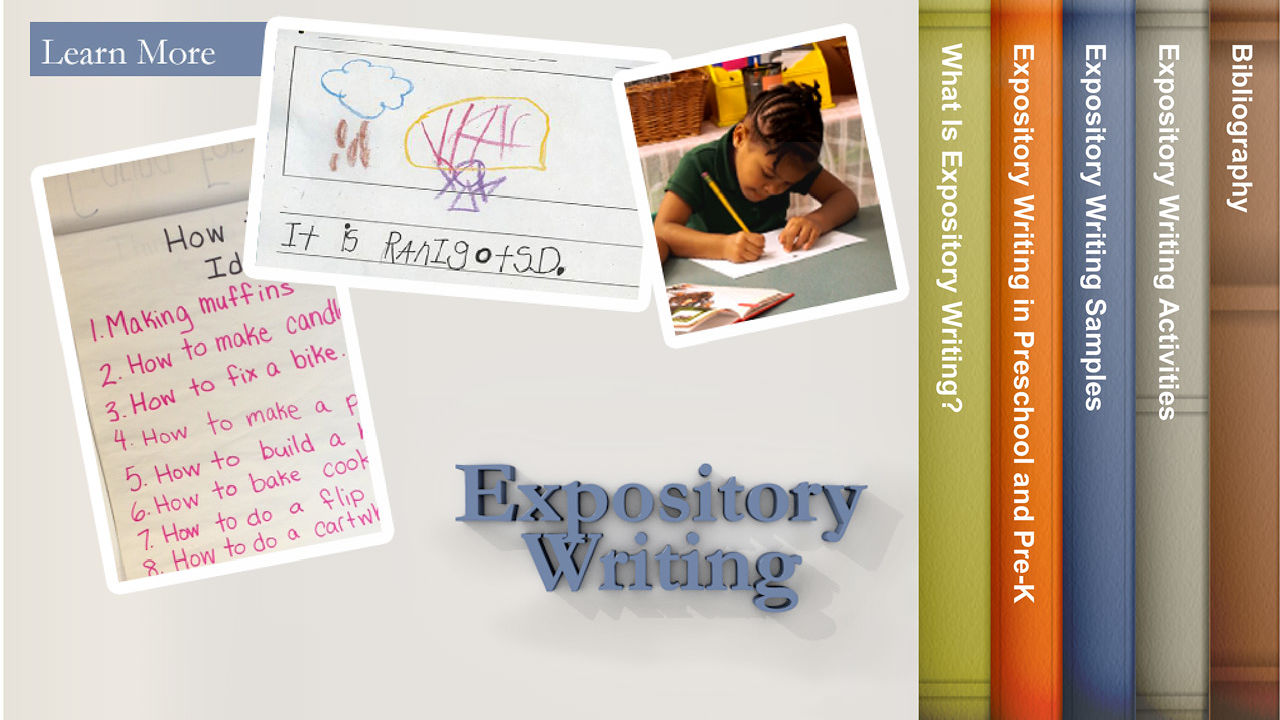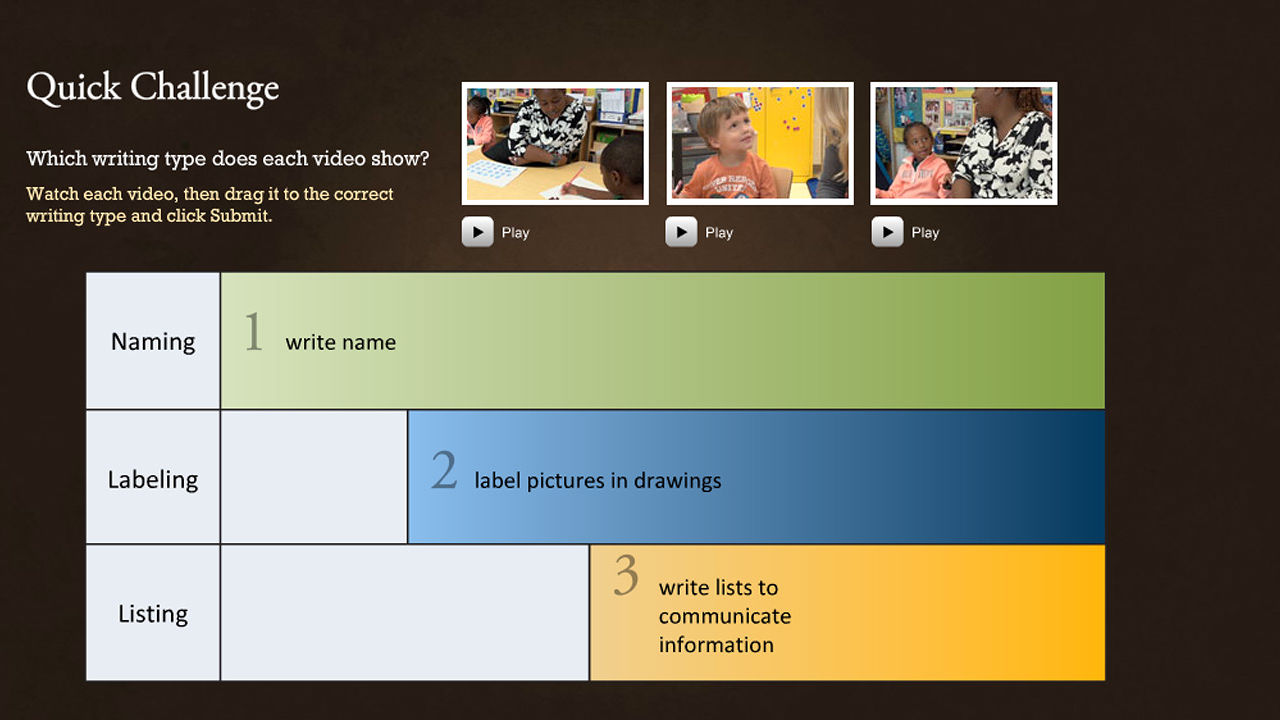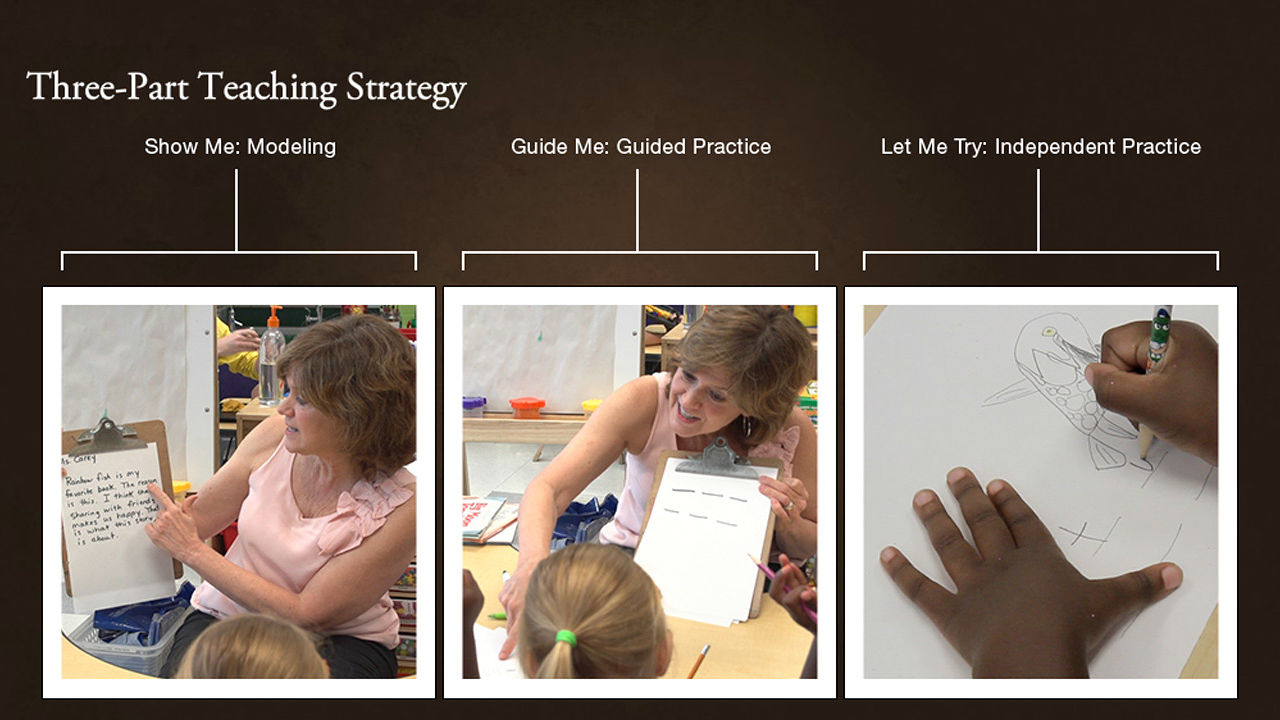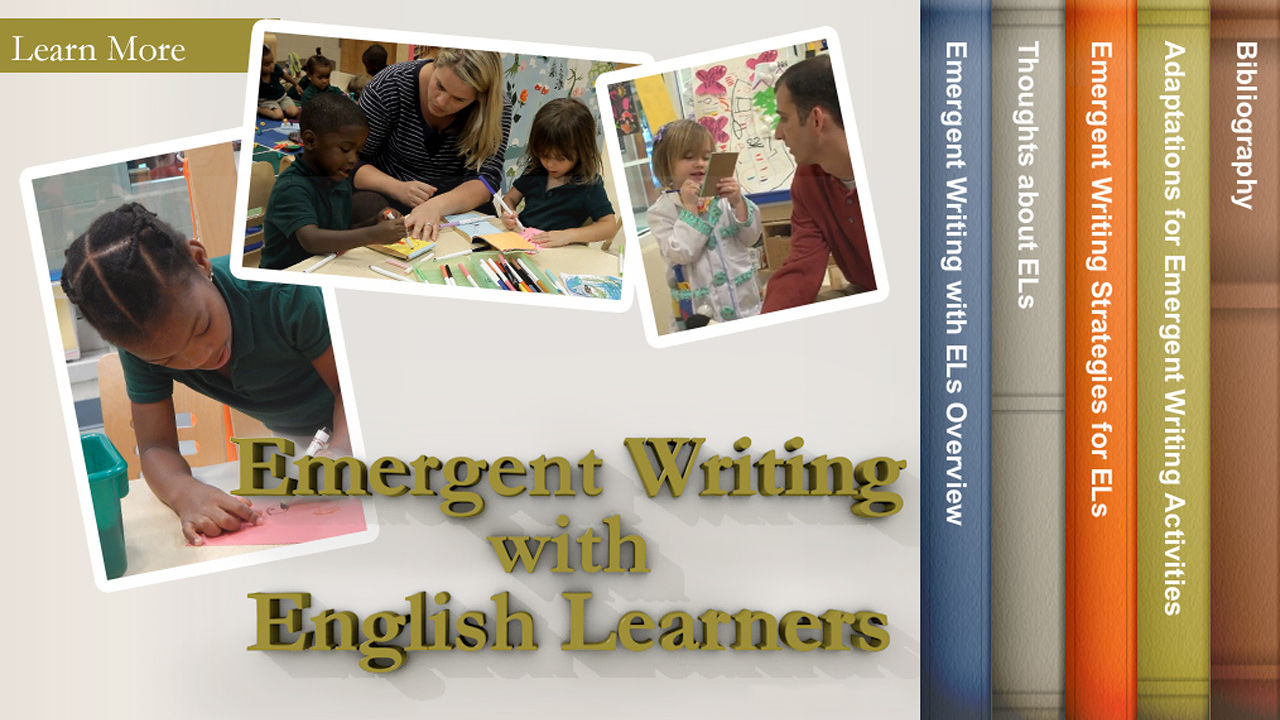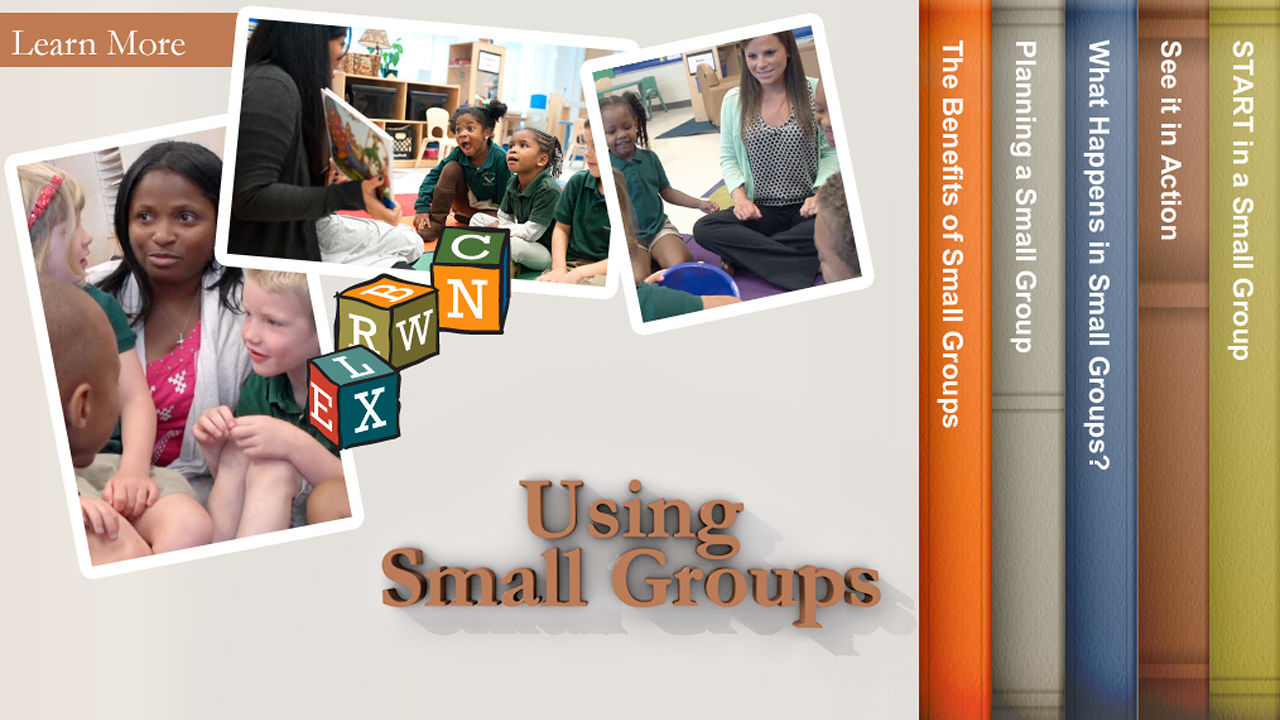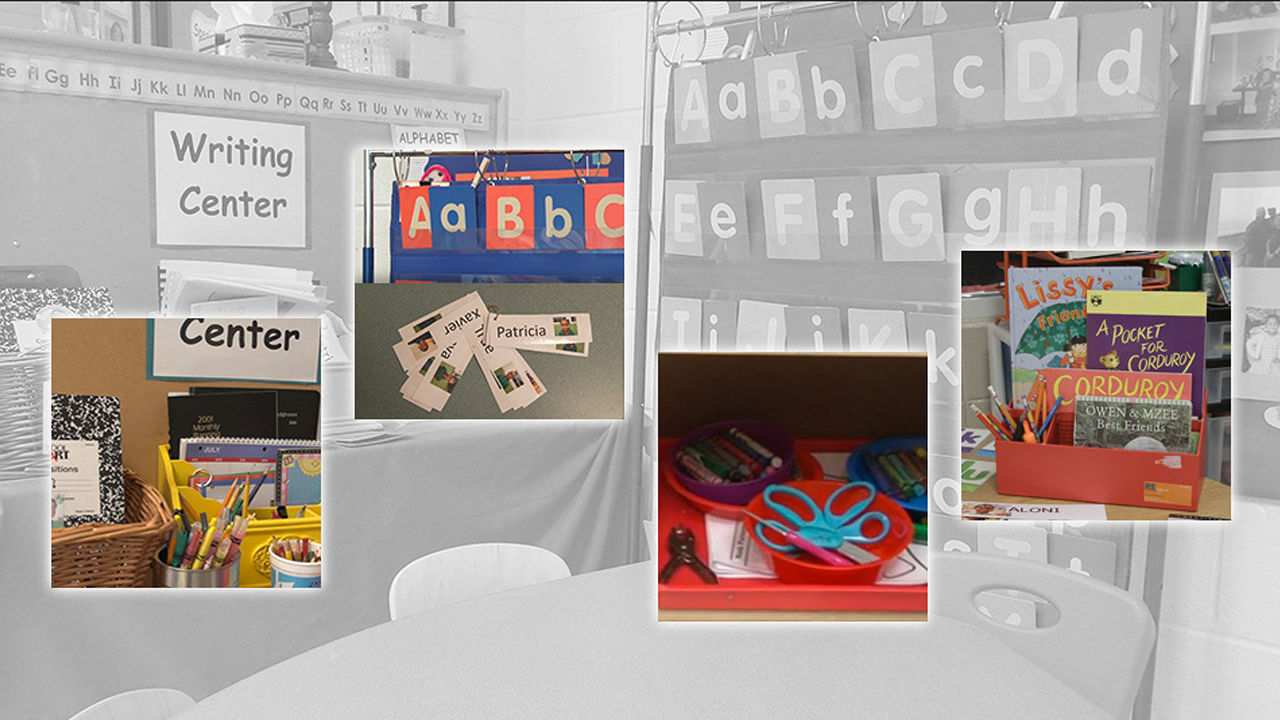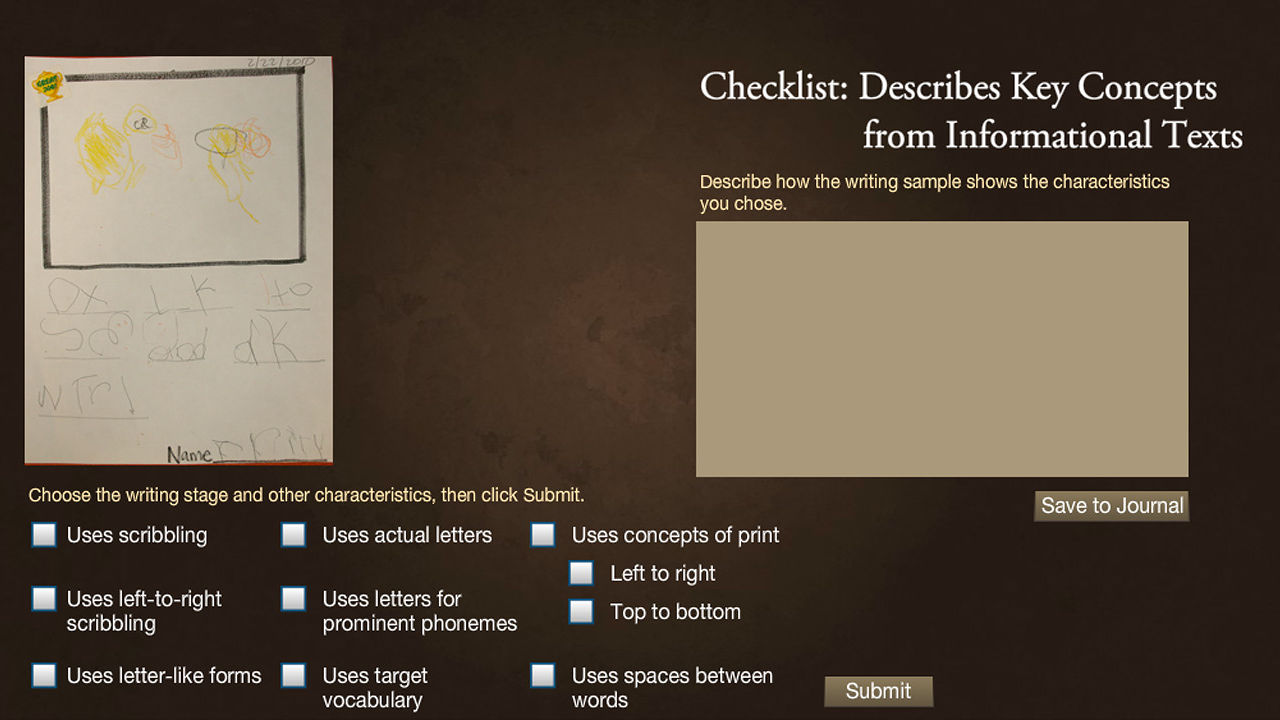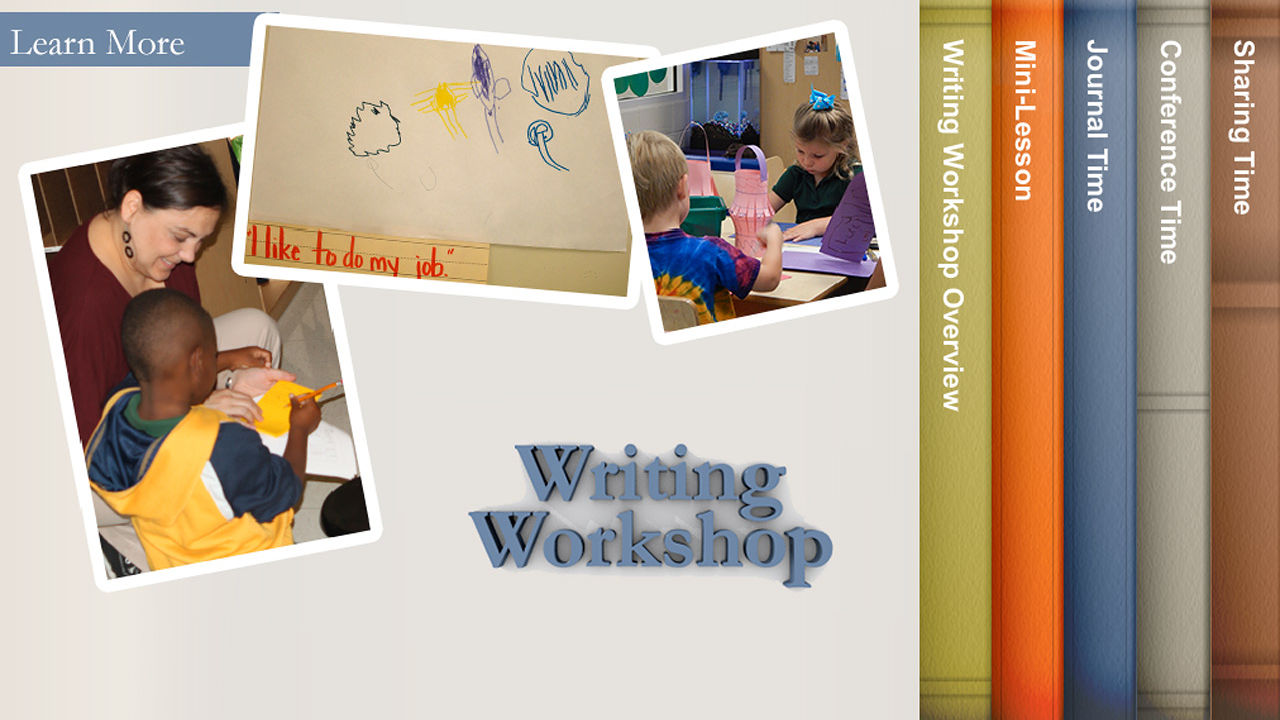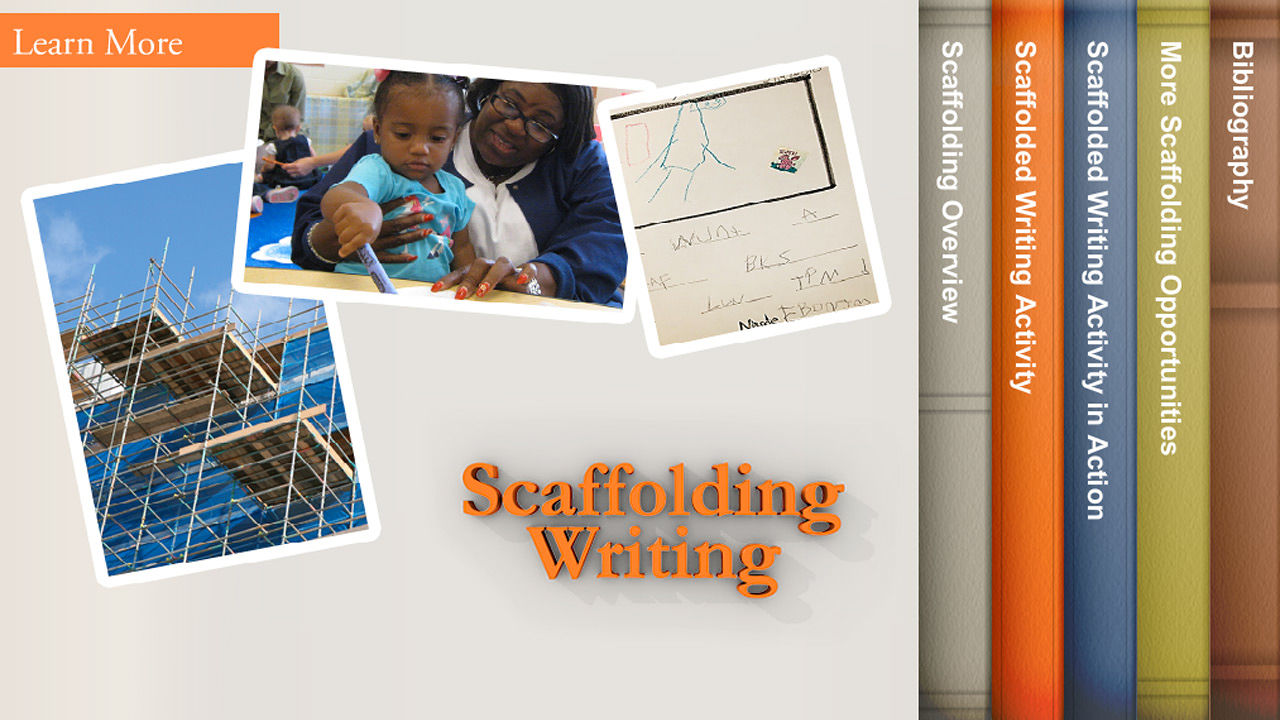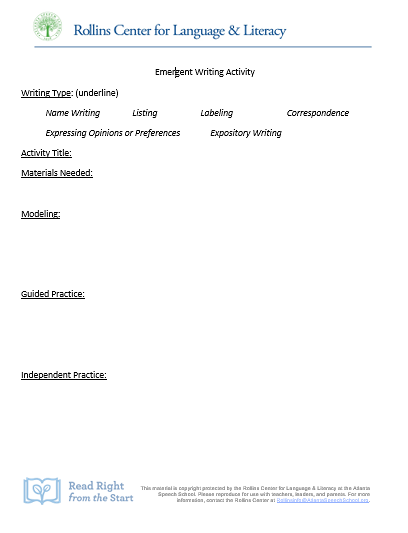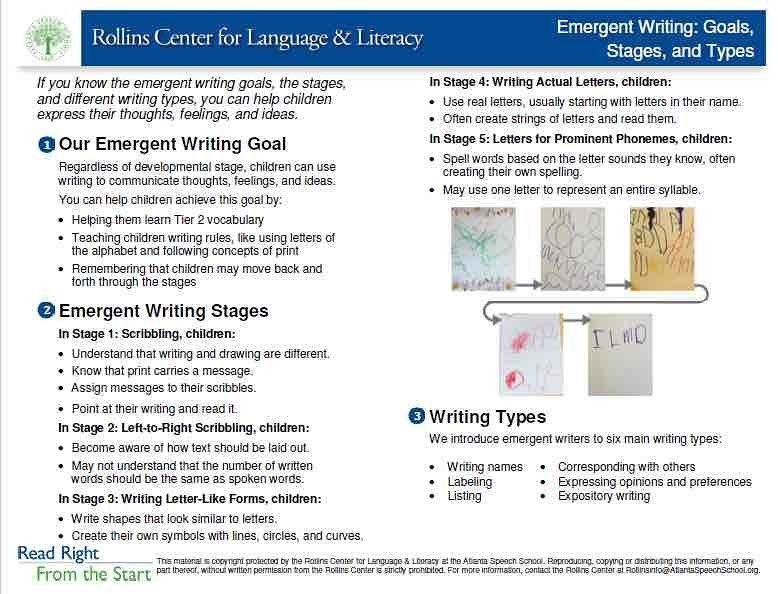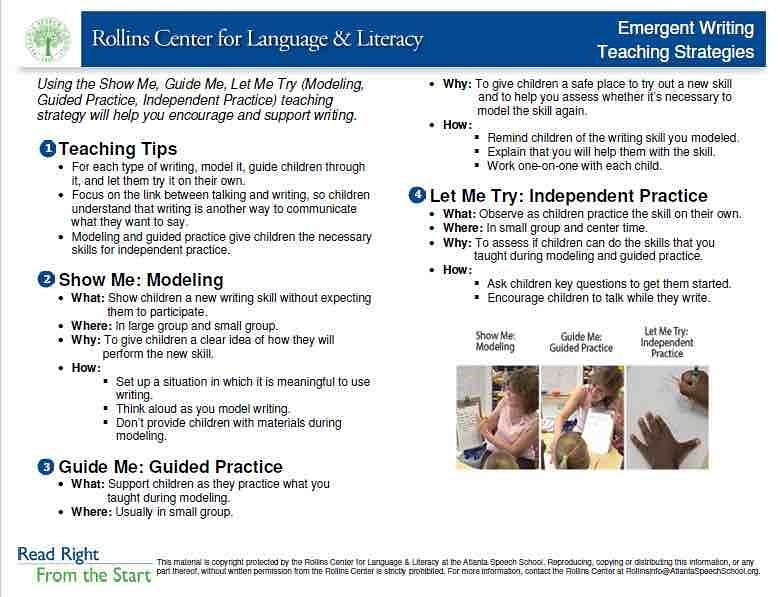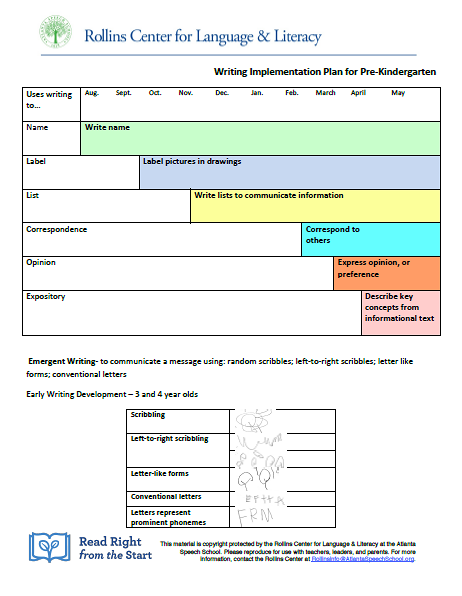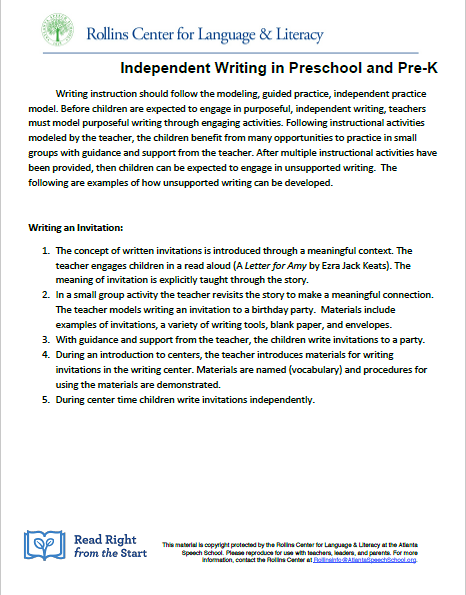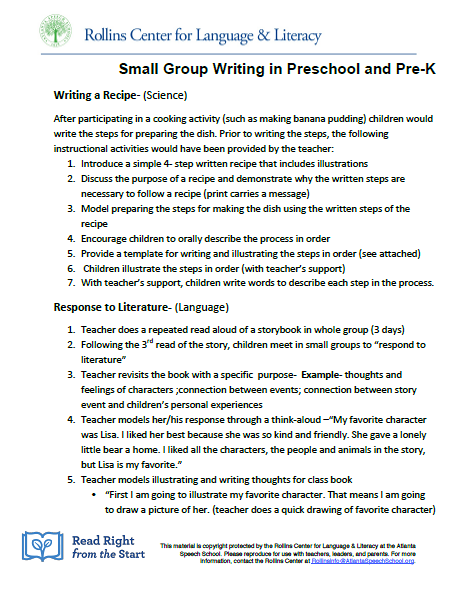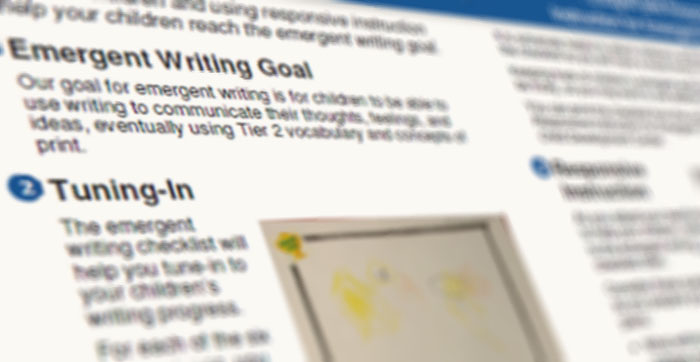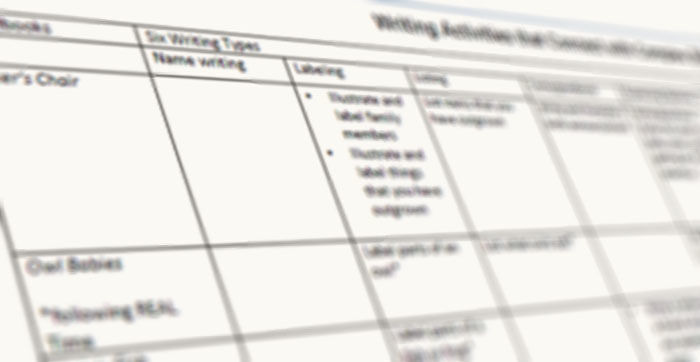Sharing Ideas Through Writing
When a kid scribbles on paper, long before they can write their letters, they’re starting to understand writing and what it means. Learn how you can foster this love of writing – and learning – in young children.
- Cost
- 100% Free
- Time to complete
- 4.5 Hours
- Provides a
- Certificate of Training
-
Teachers who work with children in preschool and pre-k, including dual language learners.
-
Families of children ages 3-5
-
Childcare program and site directors
- Describe the different stages of emergent writing for children.
- Integrate strategies to support children’s writing skill development.
- Design fun and exciting emergent writing activities to do with children.
-
Emergent writing activities prepare children to meet nationwide third-grade writing standards
-
Children will be able to communicate thoughts, ideas, and feelings through developmentally appropriate writing
How it Works
-
Learn at Your Own Pace
You don’t have to finish the course all in one sitting. In fact, we recommend you take this course a little bit at a time, incorporating what you’ve learned in the classroom.
-
Earn IACET CEUs
In order to pass and receive IACET CEUs for this course, you will first need to complete all the lessons, then complete the end of course assessment with a score of 80% or higher.
-
Free Guided Resources
As you go through a course, we’ll introduce you to free resources that will help you implement what you’re learning.
-
Never Learn Alone
Have a question on what you’re learning in the course or how to use a resource? Reach out to the Cox Campus community for advice or to lend a helping hand to others.
Lessons
-
Lesson 1
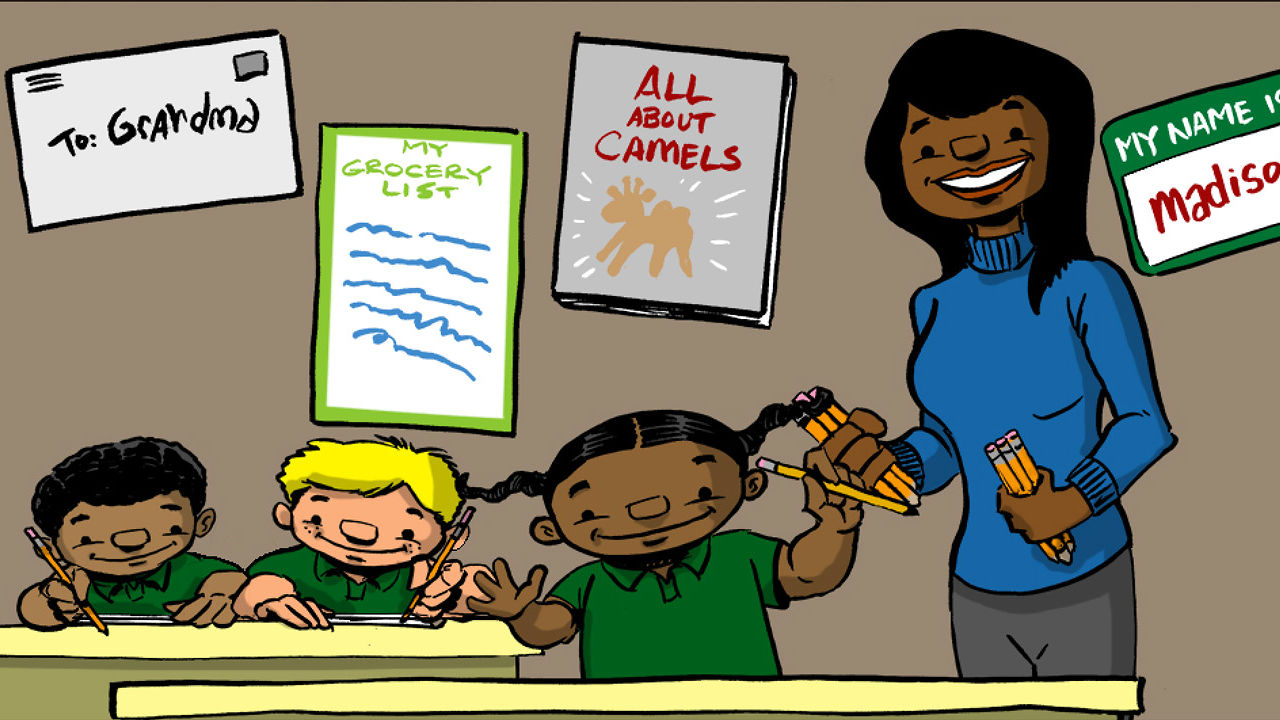
Bringing it All Together
Duration 47 minutesThis course shows how all Read Right from the Start strategies are connected to emergent writing. -
Lesson 2
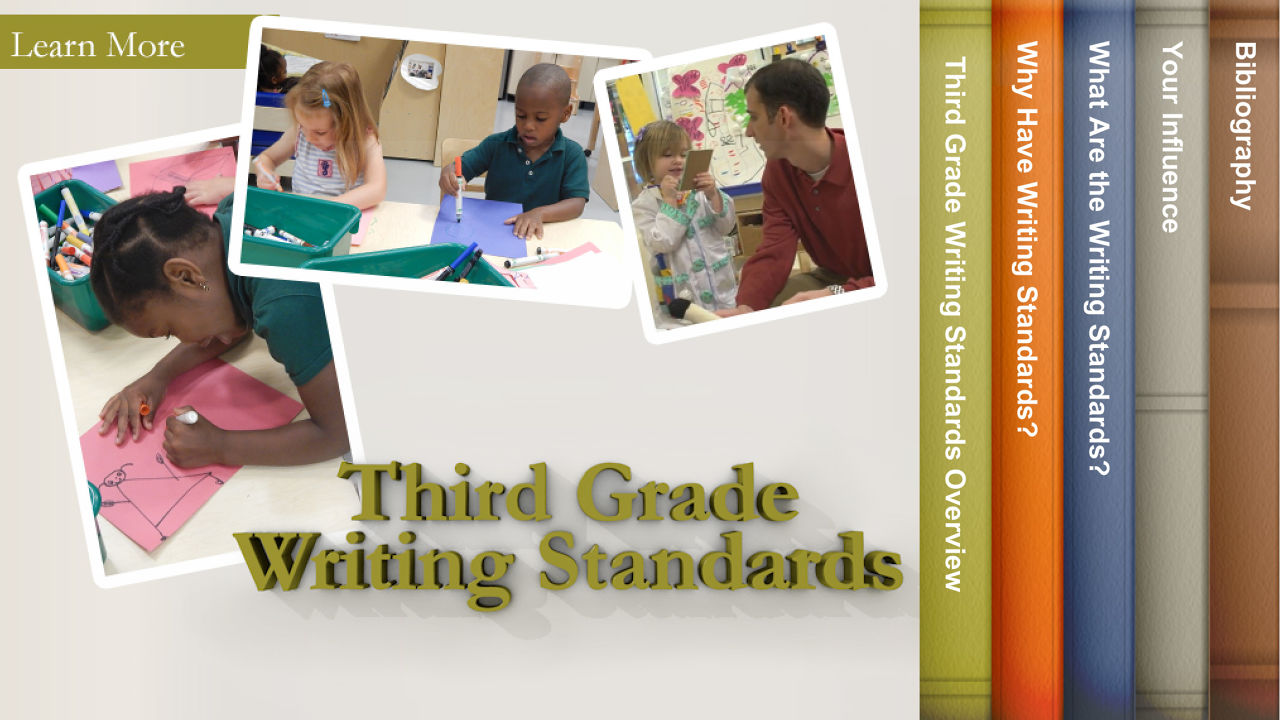
Learn More: Third Grade Standards
Duration 5 minutesDiscusses the connection between Emergent Writing with young children and Writing Standards in Third Grade and beyond. Bibliography included. -
Lesson 3
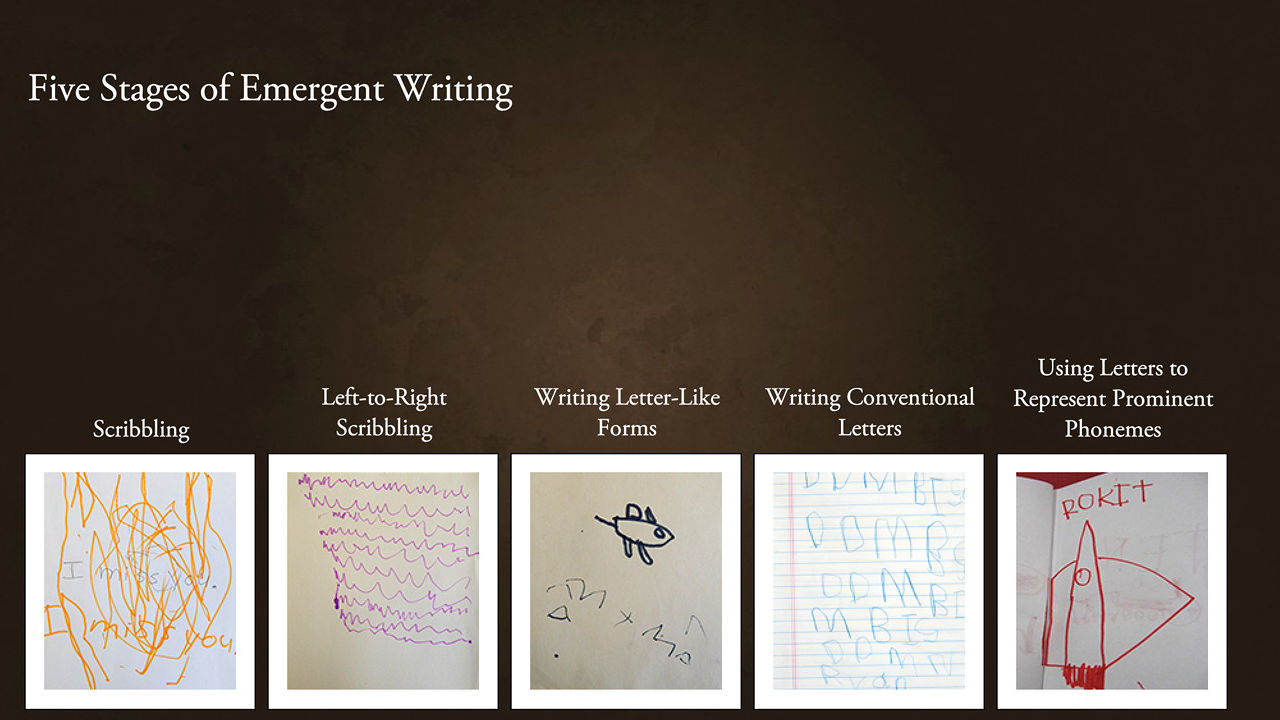
Goals, Stages, and Types
Duration 42 minutesTeachers will learn to recognize and understand the different stages of writing and the purposes of each. -
Lesson 4

Learn More: Expository Writing
Duration 5 minutesMore information on expository writing and how to practice expository writing with young children. Bibliography included. -
Lesson 5

Emergent Writing Implementation Plan
Duration 38 minutesThis course shows how to use the emergent writing implementation plan to support children's writing. -
Lesson 6

Teaching Strategies for Emergent Writing
Duration 32 minutesLearn how the Show Me, Guide Me, Let Me Try teaching method works with emergent writing activities. -
Lesson 7

Learn More: Emergent Writing with English Learners
Duration 5 minutesProvides strategies for adapting Emergent Writing activities for English learners. Bibliography included. -
Lesson 8

Learn More: Using Small Groups
Duration 5 minutesThis Learn More will help you create more effective small group lessons. -
Lesson 9

Emergent Writing Activities
Duration 19 minutesThis course provides ideas and suggestions for bringing writing into centers. More suggestions for emergent writing activities are also shared. -
Lesson 10

Responsive Instruction for Emergent Writing
Duration 36 minutesThis course shows how to use the emergent writing checklist in order to be responsive to children's needs. -
Lesson 11

Learn More: Writing Workshop
Duration 6 minutesWriting Workshop is an effective strategy for incorporating writing activities in your classroom everyday. -
Lesson 12

Learn More: Scaffolding Writing
Duration 13 minutesSpecific strategies on how to provide scaffolded support for writing activities. Videos and bibliography included. -
Lesson 13

Sharing Ideas Through Writing End of Course Assessment
Duration 17 minutesIn this lesson, you will take the end-of-course assessment. You must score 80% or higher to pass the assessment and receive your certificate of completion.
Your Facilitator

Success Stories
-
"The Cox Campus will give you practical tools to dramatically benefit the children in your classrooms, giving them the power to be successful in elementary school and well beyond."MeganTeacher
-
"I have learned so much to take back to my classroom. I’m using these learning experiences to help strengthen the language of each child and I see a difference each day in the children’s language."DeborahTeacher
-
"I love the Cox Campus courses because I am able to log on at my convenience and learn a little more information to help me be a better teacher/caregiver and even a better parent."StaceyInfant/Toddler Teacher
FAQs
The Rollins Center, of the Atlanta Speech School, in some cases, may allow an instructor, facilitator, content editor or a subject matter expert or consultant with proprietary interests to conduct professional development activities at Rollins events, provided that appropriate disclosure of such interest is made. Disclosure of proprietary interest will be made on course material and at the beginning of the course/learning event, when applicable.
